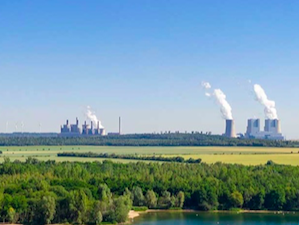“Security of supply is the order of the day. At the same time, climate protection remains one of the key challenges of our time. RWE supports both: in the current crisis, we are contributing to security of supply in Germany by temporarily increasing the use of our lignite-fired power plants and are thus also helping to displace gas from electricity generation. At the same time, we are investing billions of euros to accelerate the energy transition and are ready to phase out lignite by 2030. The further acceleration of the coal phase-out must not be at the expense of employees. That is why we want the phase-out to happen in a socially responsible way, as before. It was important to RWE that the German government also assured us that it would adapt the legal regulations so that no one is left out in the cold,“ said Markus Krebber, CEO of RWE AG.
RWE is ready to end lignite-based electricity generation in 2030. This decision is part of an agreement between the company and the Federal Ministry of Economics and Climate Protection and the Ministry of Economic Affairs, Industry, Climate Action and Energy of the State of North Rhine-Westphalia, which was presented today at a joint press conference in Berlin. The decision does not provide for any additional compensation for the company. At the same time, RWE confirmed its plans to invest massively in the energy transition.
The agreement to bring forward the lignite phase-out by eight years corresponds to a halving of the previously planned time span. This will leave around 280 million tonnes of coal in the ground corresponding to around 280 million tonnes of CO2 that will not be emitted. RWE is thus making a significant contribution to ensuring that Germany can achieve its climate protection targets. The company's long-term CO2 balance will thus once again improve considerably. Even before this decision, the company's strategy was in line with the Paris Climate Agreement. The 2030 coal phase-out is the basis for RWE to now be able to adjust its CO2 reduction plan to the 1.5 degree path.
For many employees at RWE, the early exit has a major impact. While more staff will be needed in the short term to operate additional power plants during the energy crisis, staff reductions will accelerate significantly towards the end of the decade. The company welcomes the fact that the German government intends to ensure that legal regulations allow for the use of the adjustment allowance. As in the past, RWE intends to implement the staff reduction process resulting from the accelerated decommissioning in a socially responsible way. The aim is also to give younger employees who cannot retire early an overview of the opportunities within the company or with other employers. Extensive qualification and retraining measures are to support the adjustment path.
In order for the coal phase-out to be possible, the energy transition must be so far advanced by 2030 that Germany's security of supply is not at risk. This requires a massive expansion of wind and solar power plants, storage facilities and additional secured capacity in the form of state-of-the-art gas-fired power plants that can be operated with hydrogen in the future. The German government intends to create a framework for the construction of these plants in order to facilitate the necessary investments.
RWE will play a major role in driving forward the expansion of these modern technologies. As one of the world's leading companies in renewable energies, the company will invest more than €50 billion gross globally in the expansion of its green core business by 2030, €15 billion of which is earmarked for Germany.
In North Rhine-Westphalia, the company is working to further increase its expansion target of 1 gigawatts (GW) of renewables. The Rhenish lignite area, with its former open-cast mining areas, is a focal point. RWE intends to participate in the necessary expansion of modern H2-ready gas-fired power plants with around 3 GW of power plant capacity. To this end, the company is earmarking former coal-fired power plant sites in NRW to strengthen the structural change of the region and secure industrial jobs.


